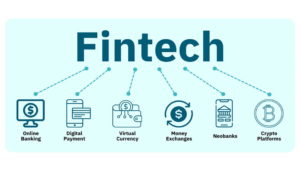Financial technology, or fintech, is a constantly changing field, and the upcoming ten years will bring about important developments and trends that will influence the sector.
This Future-proof technology is transforming the way we manage our finances. It is the application of technology to automate and enhance financial services. It is changing everything from how we pay for our daily coffee to how we invest for the future.
Financial technology is a fast-growing industry that uses technology to improve financial services. These technologies are improving the efficiency, security, and accessibility of financial transactions through mobile banking, payments, blockchain, and robo-advisors. Besides making money management easier, these technologies open the door for new financial services and technology solutions that can meet the various demands of both individuals and companies. Fintech is expected to bring about even more innovations and opportunities in the financial industry as it grows.
Broad categories of technological advancements are planned to enhance and automate the provision and utilization of financial services. Any technology that makes it easier for individuals and businesses to handle, process, and exchange money falls under this wide area. The main objective of this financial technology is to improve the financial experience by making it easier to use, more effective, and accessible.
10 Fintech trends to look out for in the upcoming years

The fintech sector is expected to grow as a result of following trends that ARE NOT ONLY incredible technological advancements but also influential on the financial sectors.
Artificial Intelligence and Machine Learning: With chatbots and virtual assistants, AI and ML will be crucial in increasing fraud detection, personalizing financial services, and boosting customer support. Financial institutions will be able to predict client wants and market trends with the use of predictive analytics, which is made possible by these technology solutions, resulting in more proactive and customized services.
Blockchain and Cryptocurrencies: From safe transactions to smart contracts, blockchain technology zone will continue to transform many surfaces of finance. The use and regulation of cryptocurrencies will grow, bringing them closer to the general public. A greater degree of acceptability and integration into regular financial operations will result from improved interoperability between various blockchain networks and conventional financial systems.
Decentralized Finance (DeFi): As these platforms expand, they will be able to provide decentralized borrowing, trading, and lending services without relying on conventional middlemen. Through the democratization of finance, small firms and individuals will get access to financial services that were previously unattainable and innovation in financial goods and services will be encouraged.

Open Banking: As the push toward open banking gains grip, more competition and Next-gen innovation will result from the ability of outside developers to create services and applications centered on financial institutions. Customers will have greater choice and control over their financial data due to seamless integration across different financial service providers.
Digital Payments and Wallets: Convenience and security will be the driving forces behind the rapid adoption of Future-proof digital wallets and payment systems in a cashless society. Contactless payments, biometric authentication, and real-time payment processing are examples of innovations that will improve user experience and security while increasing the dependability and accessibility of digital payments.
Regtech (Regulatory Technology): By managing risk and regulatory changes with the use of cutting-edge technology solutions, regtech solutions will assist financial institutions in complying with regulations more effectively. Automation and artificial intelligence (AI) will simplify compliance procedures, lower expenses, and increase accuracy, allowing businesses to more easily traverse the complicated regulatory environment.
Insurtech (Insurance Technology): AI, IoT, and big data will improve risk assessment, claims processing, and client engagement in the insurance industry, leading to substantial technology zone improvements. Usage-based insurance models and personalized insurance products will flourish, providing customers with more flexible and customized coverage alternatives.
Financial Inclusion: Fintech will keep being a vital component of closing the global financial inclusion gap by offering financial services to underprivileged groups. People in distant and underserved areas will be able to access banking and credit services thanks to mobile banking, microlending, and digital identification solutions, which will promote economic growth and lower poverty.

Green and Sustainable Finance: With fintech solutions enabling green investments, carbon tracking, and ecologically friendly financial products, there will be an increasing focus on sustainable finance. To support sustainable economic development, financial institutions will increasingly include environmental, social, and governance (ESG) considerations in their decision-making procedures.
Quantum computing: It is still in its infancy, but it has the potential to completely transform the financial industry by tackling difficult issues at previously unheard-of rates. This will have an influence on fields like risk analysis and cryptography. The application of quantum algorithms in finance has the potential to revolutionize computational capabilities by improving fraud detection, secure communications, and portfolio optimization.













